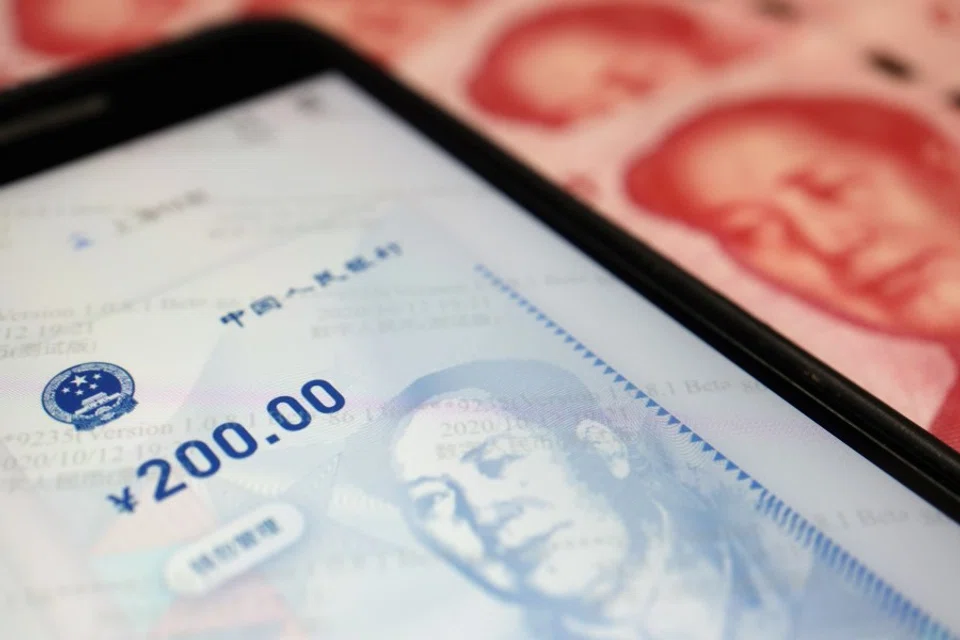Will China's digital currency accelerate the internationalisation of the RMB?
Some are of the opinion that an e-RMB will encourage the internationalisation of the RMB as a major global currency. NUS academic Duan Jin-Chuan argues that whether the RMB is digitalised or not is not the key issue; internationalisation of the RMB really depends on demand for and attractiveness of the RMB as a trading and value storage tool.

China's efforts to formally establish a digital RMB go back to 2016, when the People's Bank of China (PBOC) established its Digital Currency Research Institute. Key results were seen in April 2020, with the PBOC announcing pilot initiatives in several provinces and cities. The pace of development indicates that the widespread use of e-RMB is imminent.
I have always felt that a central bank-issued digital currency taking the place of paper currency is a natural progression of technological advancement, and an inevitable consequence of economic momentum. But I do not agree with the many claims that the e-RMB will play a key role in the internationalisation of the RMB. Focusing too much on the technical advancements of digitalisation while ignoring the stronger, more fundamental market forces makes it easy to come to a biased conclusion.
I think the internationalisation of the RMB is a matter of time. The pace would depend on China's continued economic growth, pace of opening to cross border capital, and enhancing the rule of law in arbitrating economic disputes. Digitalising the RMB is forward-looking, but not a key factor in its internationalisation.
Digitalised or not, we have to ask: what advantage is there in trading in RMB over the US dollar? If there is no advantage, why hope that the RMB will become a major international currency?
What advantages are there to trading in RMB over the US dollar?
Firstly, the existence of e-payment tools may not directly translate to high take-up rates. Obstacles faced by e-RMB within China include credibility of technology and people's usage habits. Convenience and necessity would determine its take-up rate - given the success of Alipay and WeChat Pay, I am confident of the outlook for e-RMB within China.

Internationalisation calls for a high take-up rate outside of China. We have to ask: why is the RMB not widely used by foreigners? Those who have used the paper RMB overseas would agree that it is welcome in tourist spots, for the sake of Chinese tourists. The key is not whether it is digitalised, but the motivations for the receiver. What about large trading payments? Digitalised or not, we have to ask: what advantage is there in trading in RMB over the US dollar? If there is no advantage, why hope that the RMB will become a major international currency?
The stable growth of China's economy is surely the number one factor in the RMB becoming a major international currency.
Moreover, if the e-RMB does not come with anti-money laundering features, it may very likely take the place of Bitcoin as a money-laundering tool, in getting past foreign exchange regulations or to carry out other illegal activities. While money laundering is a real economic need, most people would not consider it something to be trumpeted. More importantly, there is limited need for money laundering and such a purpose is far from sufficient to make the RMB a major international trading currency.
The stable growth of China's economy is surely the number one factor in the RMB becoming a major international currency. Without trade or investment demand, there would be no basic motivation internationally to hold RMB. But in the near future, China will become the world's largest economy, and therefore we should expect the RMB to become a major international currency.

Incentive needed to use RMB as a tool to store value
Secondly, currency is both a medium of exchange and a tool to store value - each is inseparable from the other. Value storage means investing the currency that one holds into financial tools in that same currency, to earn short, or medium- to long-term gains. The numerous value storage options for RMB would make it more attractive to use RMB to trade. Foreign exchange regulations on RMB give foreign companies and individuals holding RMB limited channels to invest. Converting to US dollars or euros before investing would mean having to convert back to RMB according to future trading needs; fluctuating exchange rates and additional trading costs make this option unattractive.
... much would depend on the pace of relaxing foreign exchange regulations on RMB, the allowance for the diversification of financial products, and ensuring greater certainty in economic dispute arbitration.
When the RMB is digitalised, foreign exchange transactions will get faster and cheaper, but exchange rate movements are not dependent on digitalisation. To put it simply, technological advancements are not enough to shift the fundamental considerations mentioned above.
For the RMB to become the main choice for foreign persons and companies in value storage, and the main foreign exchange reserve for foreign governments, much would depend on the pace of relaxing foreign exchange regulations on RMB, the allowance for the diversification of financial products, and ensuring greater certainty in economic dispute arbitration.
After World War II, the US profited greatly from the US dollar, in a testament to the importance of being a major international currency. The aim of making the RMB an international currency is clear, but the process has to be done step by step. The Chinese government's actions in capital control and capital outflow when the RMB weakened in 2016 shows the effect of capital regulation on financial and economic stabilisation. Making the RMB international calls for an appropriate balance between reform and maintaining financial stability. In any case, an e-RMB will not be a key catalyst for internationalisation of the RMB, but it will be a major milestone in China's modernisation.



![[Photos] Fact versus fiction: The portrayal of WWII anti-Japanese martyrs in Taiwan](https://cassette.sphdigital.com.sg/image/thinkchina/3494f8bd481870f7c65b881fd21a3fd733f573f23232376e39c532a2c7593cbc)

